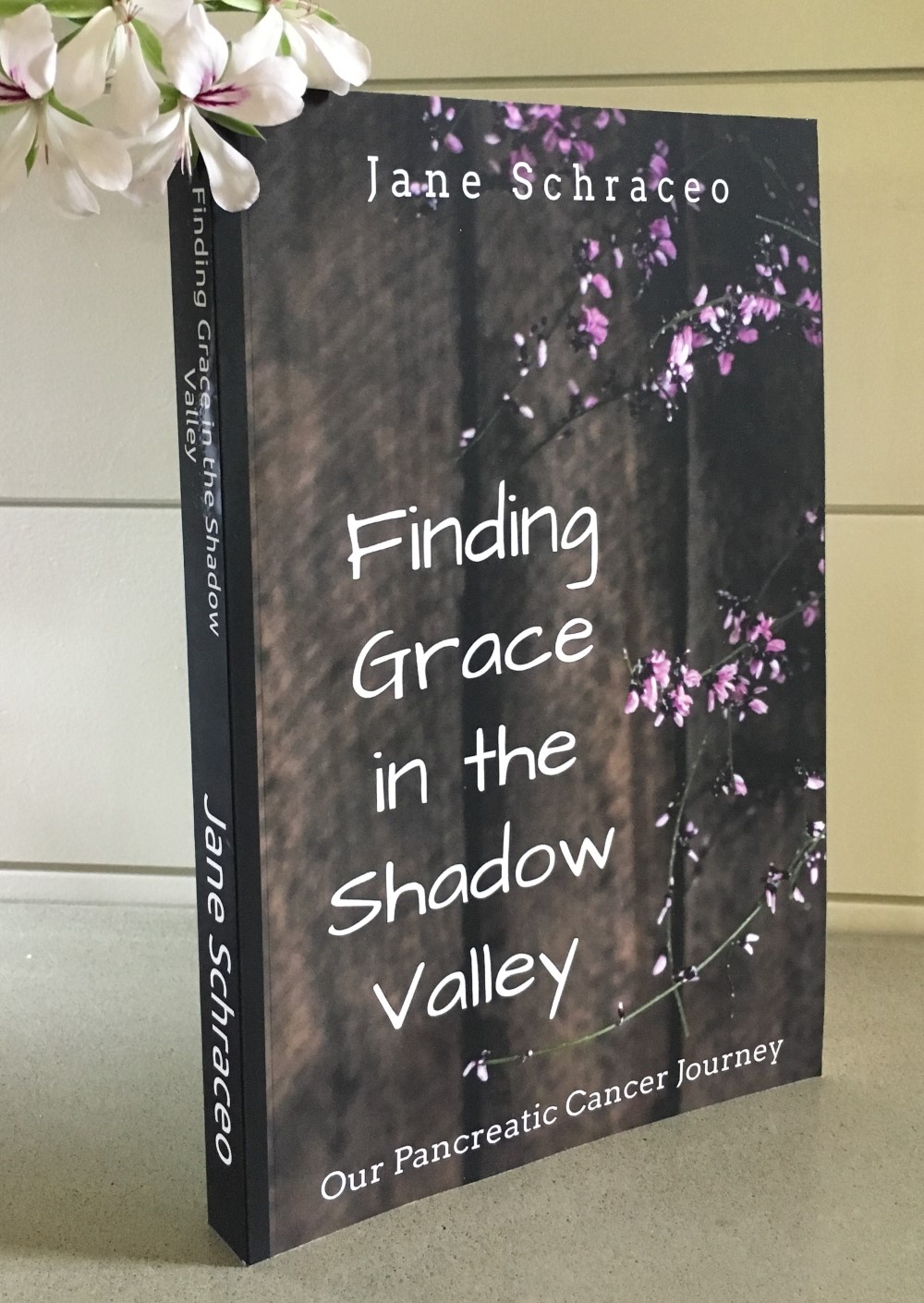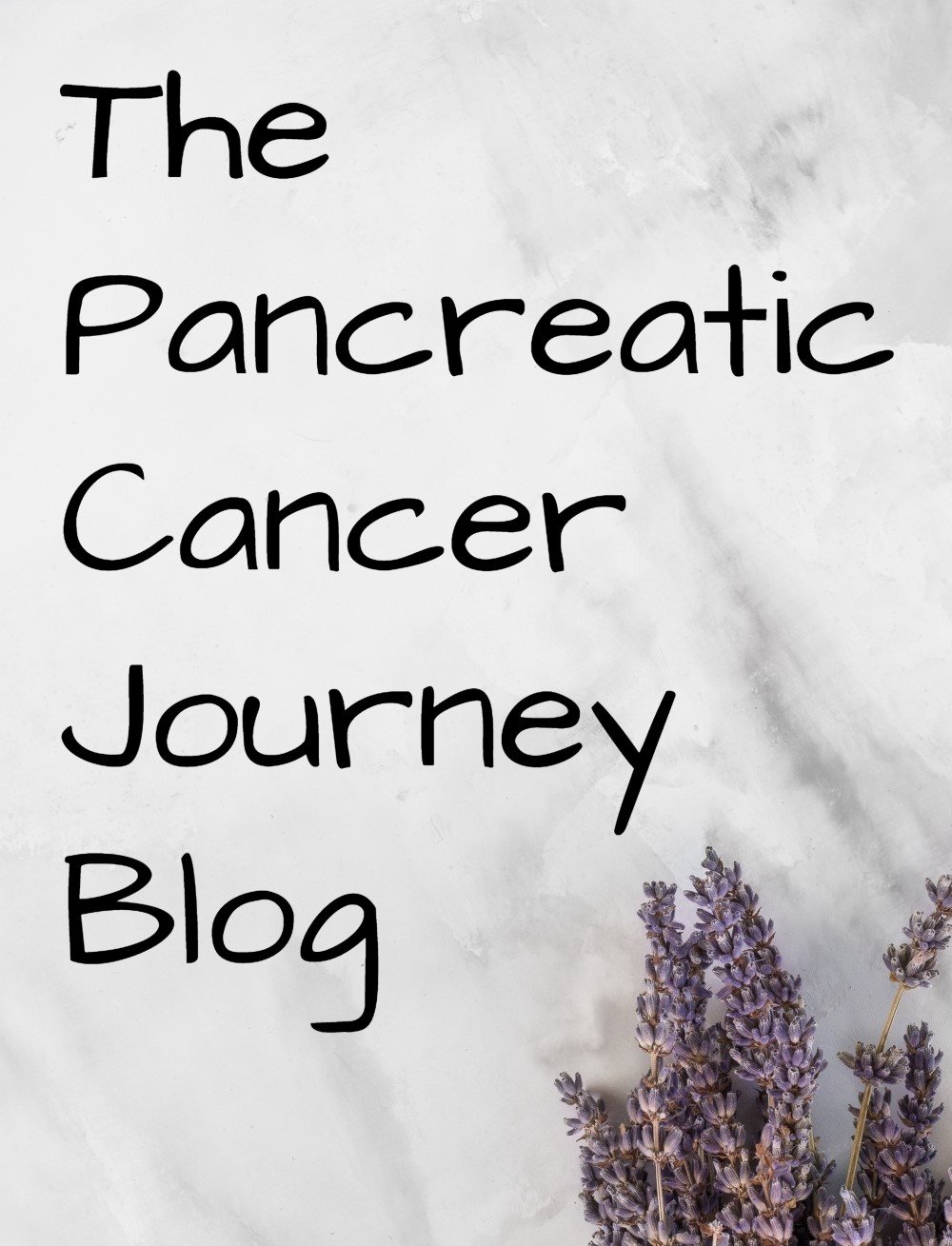Pancreatic Cancer Fatigue
Pancreatic Cancer Fatigue is nothing to sneeze at. As a matter of fact, it's so debilitating that mom didn't even have the energy to sneeze, much less grab a tissue for her nose.
It is demoralizing to be so exhausted that just brushing your teeth makes you feel like you've run a marathon. So tired, that on the worst days, mom barely made it from the bed to the couch and back again. We're talking mega-tired, cancer fatigue.
And here, we were so very worried about nausea and hairloss. Those are the side effects that make the news, after all. Nothing had prepared us for her overwhelming exhaustion. The debilitating, paralyzing, cancer related fatigue that was not relieved by sleep or periods of rest.
Mom probably would have been alarmed at her lack of energy, if she had enough energy to care. As it was, the whole family was concerned. So, we hit the books and began our research. This is what we found:
First of all, fatigue does not mean that the cancer is getting worse.
Second of all, but just as importantly, fatigue does not mean that the treatment is not working.
What you are feeling is "normal" if anything about cancer treatment can be considered normal! Cancer related fatigue is an actual, physical symptom of cancer and its treatments. While doctors and researchers can't say for sure exactly why cancer itself causes the fatigue, it definitely does. And we do know that chemotherapy and radiation will trigger the exhaustion, often because of their effect on the bone marrow and consequent low blood counts. When a patient's red blood cell count drops, anemia often results. And anemia is a definite cause of whole-body tiredness and exhaustion.
So cancer fatigue is not something in your head. It is real, and it is exhausting. It is perhaps best described by a cancer survivor. The following excerpt on cancer fatigue is from the journal of Maureen Gilbert, a breast cancer survivor. Yes, breast cancer. I know, it's not pancreatic cancer, but in this realm of cancer related fatigue, her story is poignant, real and honest. She has suffered thru surgeries, chemotherapy, and radiation. She knows a thing or two about cancer and fatigue. Read on for much greater understanding:
"The cancer fatigue was there from the beginning. Three days after diagnosis, I wrote in my journal, "I wake up and think, ‘I want to sleep more; I’m physically worn out.’ Then I think, ‘I’ve got cancer.’ Then I think, ‘Oh, hell, which of the hundreds of pressing things that I have to do will I do? Make lists? Think? Clean the house? Who will I talk to on the phone? What time and energy do I have for practical things?’" After my first mastectomy, the fatigue intensified: "Even writing about it all makes me feel exhausted and makes the task seem damn near impossible." Chemotherapy put the tin hat on it: "Writing is a bit like pushing the pen through resistant mud or treacle....I lack the energy to deal with it any more—I’m just worn down and worn out."...Tzemisht, weak as a kitten, wobbly as a newborn fawn—my journal is full of vivid images. I knew what fatigue was like, all right.
After chemotherapy, I went back to work, and the fatigue worsened. The lowest point—worse than not being able to string a sentence together, worse than not being able to cream butter and sugar together when I was making a cake—came when I burst into tears at the end of my street one morning, utterly defeated by the complexity of deciding whether to take the bus or the train to work. "Ahead of me is MORE," I wrote, "a different kind of crucible, involving a new kind of flame." There was planned surgery, unplanned surgery, treatment, my changing body shape. There were my shifting emotions and energies, there was protecting my friends from as much of the yucky stuff as possible, there was my sense of isolation and redundancy and uselessness, there was....
Any one bit of it was enough to fell a horse. Instead, there were endless bits to it, and it went on and on and on.
In all that time, with the most solicitous and democratic doctors, the most supportive and interested breast cancer counselor and social worker, nobody mentioned cancer fatigue. Blood counts—yes; depression—yes; but fatigue—no.
I think we all took fatigue for granted; we saw it so much as part of the territory that it was just a given, not worth mentioning. At the time I was diagnosed with cancer, I had worked around disability issues for 15 years, including a 4-year stint as head of community services for the Multiple Sclerosis Society of Ireland. I knew a thing or two about fatigue and could also recognize it in myself. I knew what it did to me. To the friend who so nobly supported me through my chemotherapy, I wrote, "The main thing for you to remember is that exhaustion makes me very gloomy, and I find it hard to cope with almost anything when I am in that state." But although we talked about the coping and the gloom—even discussed a sense of depletion, of feeling run down—we didn’t mention fatigue. It just wasn’t on the radar.
What a difference it would have made if my cancer fatigue had been acknowledged! What validation I would have had. I knew that gloom was a byproduct of fatigue and not—in my case, at least—the other way around, so "treating" the gloom would have been pointless. What a comfort there would have been, however, in knowing that my exhaustion was being monitored, was being taken seriously. Instead, there were times when exhaustion was all there was, my own and that of those around me, times when fatigue seemed to expand to fill the whole world—the fatigue of dealing with what had been and with what was coming, of readjusting constantly, of negotiating endlessly.
The worst thing about the fatigue was how it stymied and befuddled all my best efforts—and, boy, did I make efforts—to reframe my cancer experience positively, to see the (truly wondrous) good in it. Navigating my way through the fatigue to access the resources that I knew I had was the really tricky bit of the journey. When I wasn’t worn out, I could get on with my life, no matter how compromised it might be at any given point. When I was fatigued, nothing else existed at all.
I am totally convinced that an acknowledgment of my fatigue would have alleviated many of its excesses. I was doing my utmost—a healthy diet, meditation, counseling, as much exercise as I could manage, and lots more besides—to cope with my fatigue. I needed to know that my exhaustion wasn’t the result of a want of imagination or some other lack in me or my attitude. For me, anyway, how I feel at any given time is less crucial than how I feel about how I feel. Validation of my fatigue as an integral part of the cancer experience—in terms that were supportive—would have made all the difference and, very likely, would have broken the fatigue-gloom cycle. I didn’t need to hear of "sleep hygiene" with its pejorative implications. Nor did I need pills or potions to block out the experience. I knew I needed to feel it all fully, if I were to grow through it, to turn it to my advantage. I knew I had healing resources within myself if I could just push through the fatigue to access them. What I needed was to be held safely in that place.
Nothing stays the same forever, and the cancer fatigue began to fade about 18 months after the journey began. Concurrently, the positive aspects of the whole experience came into ever sharper focus: the life-enhancing changes, the creativity, the celebration of who I had become—and the fatigue itself. Without fatigue, I would have learned less about myself, confronted fewer of my demons, and defeated them far less often. Without fatigue, I would have learned less about those around me—who had the courage and nobility to stay with it, who did not. Without fatigue, I wouldn’t have had the courage myself to take the risks or make the changes in my life that I now am thrilled with myself for attempting. Without fatigue, the transformational, redemptive, liberating, creative aspects of my experience would have been less obvious, less celebratory.
I don’t want to give the impression of nobility gained through suffering. There is nothing noble about hardly remembering your name because you have thrown up four times an hour for a whole day and now lack the energy necessary to find someone to stay the night in your house with you. On the other hand, cancer’s liberating potential is extraordinary: now that I have come to terms with my own mortality, exactly what else am I meant to be afraid of?
What I needed in the long dark tunnel between there and here was acknowledgment, validation, comfort, consolation—the sense that it was okay to be me, that how I was doing was good enough. Because of my journal, my key supporters, and my creativity, I made it, and made it well enough to now want to turn my energy outward, to operate from a new perspective far better for me than the one I endured before I had cancer. I can only imagine how much more might have been gained if my fatigue had received some attention."
And that is Cancer Fatigue.
I love that Maureen recognizes the need for validation, comfort and consolation during this time of cancer related fatigue. It gives me the tools to encourage my mom. I can honestly tell her that if all she wants to do right now is move from the bed to the couch than that is good enough. The cancer fatigue is real and we can acknowledge it. Remove the stress of trying to have it all together all the time. Mom's most important job is not cleaning the house, nor cooking dinner. Right now, it is taking care of herself and allowing her body the time it needs.
Mom has found that it does help to get up and move a little even on the days she's beyond exhausted. Just a short, slow walk around the house, or maybe to the mailbox to get the mail, does help her mood and ultimately seems to help her rest better. So, I guess that Cancer fatigue has slowed our pancreatic cancer journey down to a sedentary stroll. And you know, it's a whole lot easier to stop and smell the roses when we're moving slow and easy.
Return to Side Effects of Cancer from Cancer Fatigue
Return to Home Page from Cancer Fatigue
Copyright © PancreaticCancerJourney.com
Nothing on this website should be construed
to constitute medical advice.




